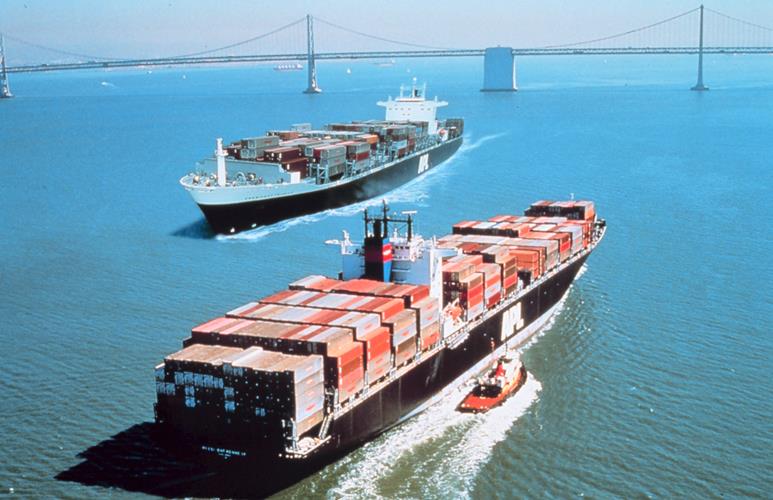For decades, American political discourse has largely operated within the spectrum of opinions voiced by the editorial pages of The New York Times, The Washington Post, and The Wall Street Journal. Opinions not embraced by one of these newspapers were unlikely to advance very far, and those voicing such unapproved opinions were, sooner or later, likely to be denounced as thought criminals of one variety or another. Not coincidentally, the opinions of the Big Three newspapers tend to advance the material interests of the type of persons who write them and read them, regardless of the impact they have on the country as a whole or on the great many Americans who are far removed culturally and geographically from the opinion-forming centers of Manhattan and D.C.
To his great credit, Donald Trump has given voice to opinions outside this bland and narrow spectrum. His longest-held heresy is the one he’s voiced regularly since the mid-1980s: that free trade has been bad for America, and that tariffs work. Indeed, it is likely that this heresy won Trump the White House, since his victory depended on flipping several dozen counties in Michigan, Pennsylvania, and Wisconsin. These states’ regional economies had been hollowed out by America’s de-industrialization, and their residents had long been comfortably ignored and even despised by the peddlers of conventional wisdom.
Trump has used tariffs to protect America’s steel and aluminum industries. More significantly, he imposed tariffs on a wide range of products originating in China, whose spectacular economic rise has largely been fueled by replacing the manufacturing industries that had sustained the less fashionable parts of the United States. This transfer of jobs and manufacturing power from the U.S. heartland was driven by D.C. bureaucrats giving most-favored-nation trade status to China, safeguarded by China’s own protectionist trade policies, and augmented by Chinese theft of American intellectual property.
Elite opinion, aghast at Trump’s tariffs, predicted that the tariffs would lead America into an unwinnable trade war with China and plunge the U.S. into a recession. Prominent among the prophets of doom were several Never Trump conservatives, including George Will, Kevin Williamson, and Bruce Bartlett.
Contrary to what globalist ideology foretold, Trump’s China tariffs have not led to recession, rising unemployment, nor even a long-term diminishment of the U.S.’s position in China. Economist Ian Fletcher has attributed the U.S.’s economic strength to the effect of the tariffs, noting that the U.S. economy has added 7 million new jobs under Trump, including 449,000 manufacturing jobs in the U.S. during 2017 and 2018, with the 2018 increase being the largest in 30 years. Fletcher notes 2.4 million Americans saw their incomes rise sufficiently to no longer be classified as poor, more than 2 million Americans in the prime working age range of 25 to 54 have returned to the workforce, unemployment is the lowest it has been in 50 years, unemployment among blacks and Hispanics is the lowest it has ever been, and median household income has reached a record $66,000 in 2019. Reversing the pattern of recent years, earnings are growing more rapidly for the bottom 10 percent of wage earners than the top 10 percent.
To be sure, a great many profound economic problems remain, but the relative success of the economy under Trump’s tariffs can be added to an already impressive historical record of strong American economic performances under presidents who imposed or maintained high tariffs.
The Wall Street Journal even ran a guest editorial arguing that the “phase one” trade deal recently agreed to by China represents “a meaningful victory in an economic conflict that’s been building for decades.” Under the agreement, China will increase its purchases of American goods and services by $200 billion over the next two years, in exchange for a reduction in some of the Trump tariffs. The U.S. exported $179.3 billion in goods and services to China in 2018, according to the U.S. Trade Representative’s Office. Tariffs of 25 percent will remain in place on some $250 billion of Chinese imports until China makes even more concessions favorable to American industry and American workers.
The beneficial effects of tariffs have not been limited to the economy. Recently, the Center for Immigration Studies (CIS) concluded that the Trump administration had succeeded in “ending the mass illegal migration crisis of 2018-2019,” without any assistance from Congress or the federal judiciary. Trump achieved this by persuading Mexico to begin policing its borders, a persuasion done “mainly by threatening to damage [Mexico’s] economy with trade tariffs,” CIS concluded. Trump is reminding Americans of something that many of his predecessors knew: Tariffs are a powerful tool to advance American interests. Tariffs work.

Leave a Reply